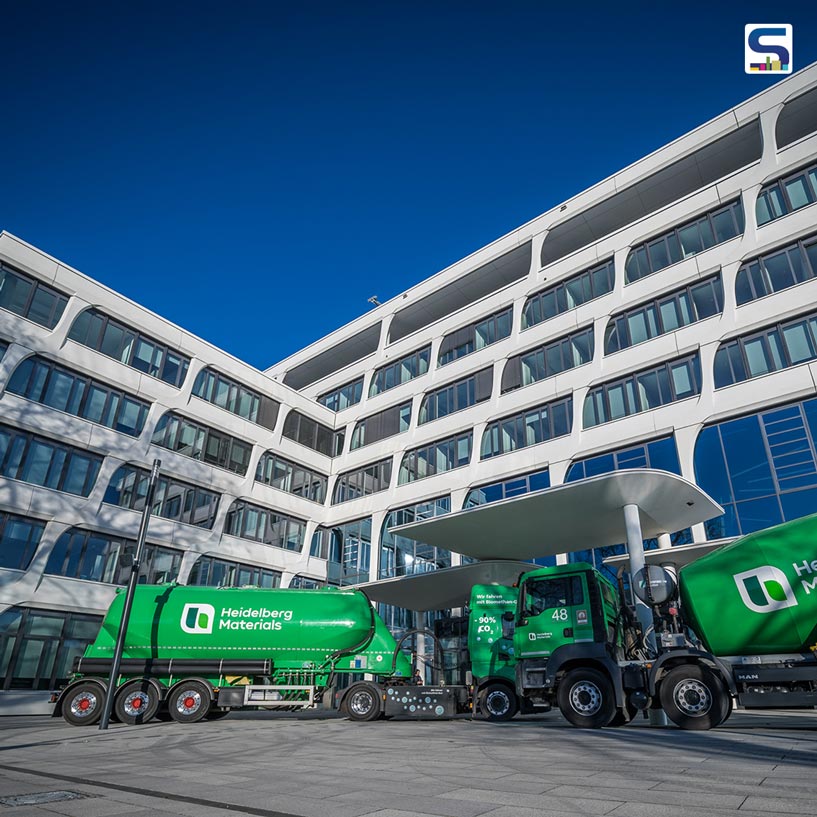
PERI 3D Construction has been pushing the boundaries of 3D construction printing in Europe with their latest project: a 54m long, 11m wide and 9m tall IT server hotel, to be constructed by the KRAUS GROUP in Heidelberg. The project is said to be the largest 3D-printed building in Europe. The most exciting part is that it'll produce zero carbon emissions and its material is 100% recyclable. This surely marks a milestone in the world of low-carbon construction. Check out the comprehensive details of the project on SURFACES REPORTER (SR).
This grand design will illustrate the potential of 3D printing with its use of COBOD BOD2 3D printer for the vertical elements and Heidelberg Materials' recyclable i.tech 3D mortar for the rest, all completed in just 140 hours. Once complete, the commercial structure by real estate company KRAUSGRUPPE will partly house a data centre and span an impressive 54 metres long, 11 metres wide and 9 metres high.
Fully recyclable materials
Heidelberg Materials is providing the material for building the structure. They are supplying approximately 450t of their innovative i.tech 3D product for the upcoming data centre - perfect for 3D printing and completely recyclable.
Dr Nicola Kimm, member of the managing board of Heidelberg Materials and chief sustainability officer said, “We are pleased to be part of this innovative project and to further develop 3D concrete printing as a particularly resource-efficient construction method with our partners.”
Heidelberg Materials’ sustainability strategy is reinforced by the utilization of innovative and eco-friendly products, such as i.tech 3D, and a focus on digital business models. According to him, this symbiotic collaboration between digitalisation and sustainability is crucial.
Lesser or no carbon emissions
As a purely mineral building material, it has a significantly lower carbon footprint than traditional Portland cement, at around 55 per cent. Partner PERI 3D Construction will be using their 3D construction printer to print the outer walls and separations.
In 2020, i.tech 3D was utilized in producing Germany's first 3D-printed residential building and the company has enhanced their construction material and CO2 content even more since then.
By 2030, Heidelberg Materials is resolute in providing circular solutions for half of their concrete products worldwide.
The printing process utilizes up to 70 per cent less material than conventional construction methods, enabling greater reduction of CO2 emissions. Moreover, it heightens construction speed and effectiveness while reducing dust, noise pollution, and tool use on-site, making it a safer environment.
Printing operations commenced in March 2023 and are believed to wrap up by July.
Image Credits: Realty Plus
Keep reading SURFACES REPORTER for more such news stories.
Join us in SOCIAL MEDIA to stay updated
SR FACEBOOK | SR LINKEDIN | SR INSTAGRAM | SR YOUTUBE
Further, Subscribe to our magazine | Sign Up for the FREE Surfaces Reporter Magazine Newsletter
You may also like to read about:
All About Zojila Tunnel: The Longest Road Tunnel In India | Kashmir to Ladakh | SR LATEST NEWS
Kuwait Unveils Plans for the World’s Tallest Tower | Burj Mubarak al-Kabir
Mumbai To Goa In Just 22 Minutes, Indias Longest Sea Bridge Will Be Ready Soon! | SR News Update
And more...